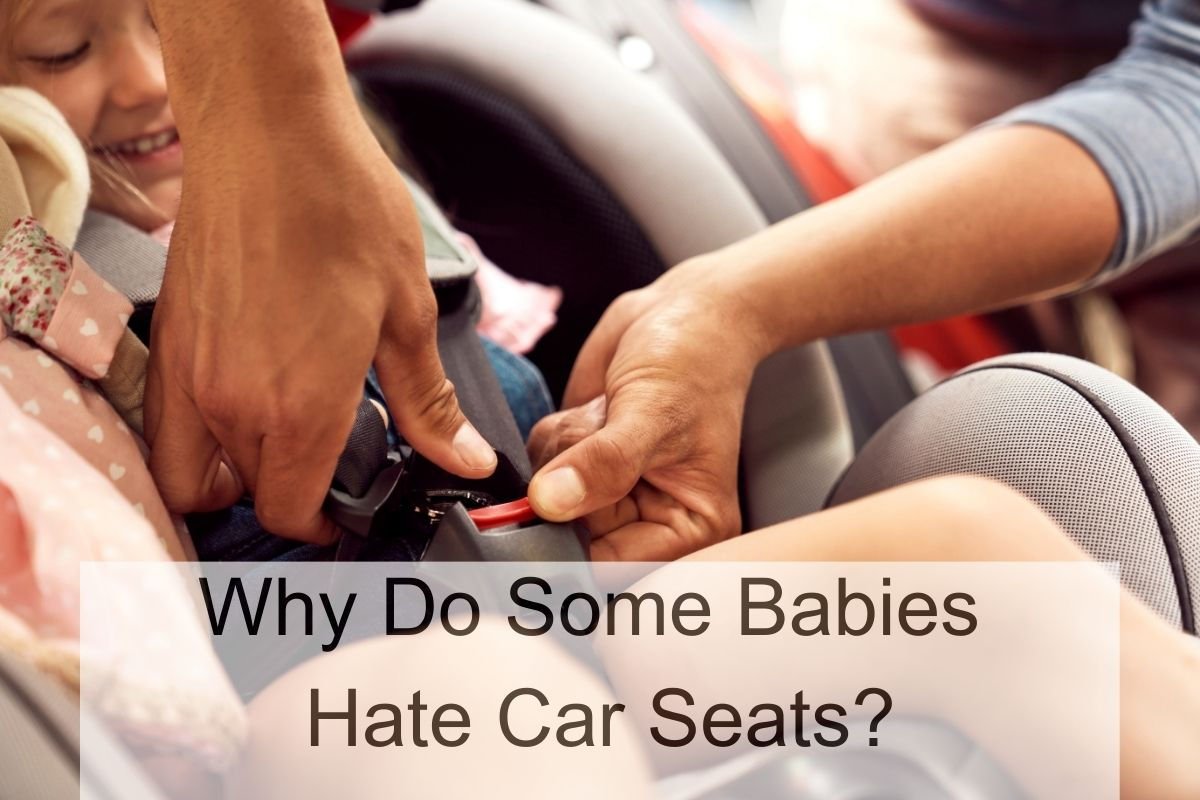As a parent, one of the most challenging things is getting your baby to sit in a car seat. It can be frustrating and stressful, especially if your baby cries or fusses every time they are in the car. I have been there, and it’s not fun. But why do some babies hate car seats?
One reason is that babies are used to being held and cuddled. Being confined to a car seat can be uncomfortable, and they may not like the feeling of being restrained. Another reason is that car seats can be overstimulating for babies, especially if they are facing backward and cannot see what’s happening. This can cause them to become fussy or upset. Finally, some babies may experience motion sickness, which can make them feel nauseous and uncomfortable.
Understanding Infant Discomfort
As a parent, it can be distressing to see your baby cry and fuss when you put them in their car seat. However, it’s important to understand that there are several reasons why some babies dislike car seats. In this section, I will discuss some of the common causes of infant discomfort and how to address them.
Sensory Overload
One reason why some babies dislike car seats is due to sensory overload. After spending months in the womb, the hustle and bustle of the outside world can be overwhelming for some babies. The bright lights, loud noises, and fast movement of a car can cause sensory overload, leading to fussiness and discomfort. To reduce sensory overload, consider using a car seat cover to block out excess light and noise.
Motion Sensitivity
Another reason why some babies dislike car seats is due to motion sensitivity. Some babies are more sensitive to motion than others, and the movement of a car can cause discomfort. To minimize motion sensitivity, try to avoid sudden stops and starts while driving. Consider taking breaks during long car rides to allow your baby to stretch and move around.
Strap Irritation
Lastly, strap irritation can also cause discomfort for some babies. The straps of a car seat can rub against a baby’s delicate skin, causing redness and irritation. To prevent strap irritation, make sure that the straps are adjusted correctly and are not too tight. Consider using a strap cover or a soft cloth to cushion the straps and protect your baby’s skin.
Safety and Design Factors

As a parent, I know that the safety of my child is my top priority. When it comes to car seats, there are several safety and design factors that can affect a baby’s comfort level. Here are some of the most important ones:
Improper Installation
One of the most common reasons why babies hate car seats is because they are not installed properly. If the car seat is not installed correctly, it can be uncomfortable for the baby. It’s important to read the car seat manual carefully and follow the instructions step-by-step. If you’re not sure if the car seat is installed correctly, you can have it checked by a certified car seat technician.
Incorrect Harness Use
Another reason why babies may hate car seats is because the harness is not adjusted correctly. If the harness is too loose, the baby can move around too much and feel uncomfortable. If the harness is too tight, it can be painful for the baby. It’s important to adjust the harness according to the car seat manual and make sure it fits snugly but comfortably.
Seat Ergonomics
The design of the car seat can also affect a baby’s comfort level. Some car seats are designed with ergonomics in mind, while others are not. A car seat that is ergonomically designed will provide better support for the baby’s head, neck, and back, which can make the ride more comfortable. Look for car seats that have adjustable headrests and recline positions to ensure a proper fit for your baby.
Behavioral and Psychological Aspects

As a developmental psychologist, I have observed that the reasons why some babies hate car seats are not always physical. In fact, some of the most common reasons are behavioral and psychological.
Separation Anxiety
One of the most common reasons why babies hate car seats is separation anxiety. Babies may associate the car seat with being separated from their primary caregiver. This can cause them to feel anxious, scared, and upset. Separation anxiety is a normal part of a baby’s development, but it can be overwhelming for both the baby and the parents.
To help alleviate separation anxiety, parents can try to make the car seat a more positive experience. This can be done by placing familiar objects, such as toys or blankets, in the car seat. Additionally, parents can try to soothe their baby by talking to them in a calm and reassuring voice.
Lack of Movement Freedom
Another reason why babies may hate car seats is due to their natural desire for movement freedom. Babies are naturally curious and want to explore the world around them. Being confined to a car seat can be frustrating for them, especially if they are used to being able to move around freely.
To help alleviate this issue, parents can try to make the car seat a more comfortable and stimulating environment. This can be done by placing toys or mirrors within the baby’s reach. Additionally, parents can try to take frequent breaks during long car rides to allow their baby to move around and stretch their legs.
Environmental Influences

As a parent, I have found that environmental factors can significantly impact my baby’s comfort level in a car seat. Two major environmental factors that can cause discomfort are car temperature and visual stimulation.
Car Temperature
Babies can be sensitive to temperature changes, and a car seat can make them feel warmer than usual. It is essential to keep the car at a comfortable temperature, not too hot or too cold, to avoid causing discomfort to your baby. A good rule of thumb is to dress your baby in one extra layer than you would wear in the car. You can also use a car seat cover to regulate the temperature around your baby.
Visual Stimulation
The world can be a scary and overwhelming place for a baby, and the constant visual stimulation can be too much for them to handle. The car seat’s position, angle, and proximity to the car’s windows can all contribute to the amount of visual stimulation your baby is exposed to during a car ride. It is essential to ensure that your baby’s car seat is appropriately positioned and angled, and that the car’s windows are covered to reduce the amount of visual stimulation.
Tips for Easing the Journey
As a parent, I know how difficult it can be when your baby cries every time you put them in their car seat. Thankfully, there are some strategies that can help make the journey more comfortable for both you and your little one.
Choosing the Right Car Seat
One of the most important things you can do to ensure your baby is comfortable in their car seat is to choose the right one. Make sure the car seat is appropriate for your baby’s age and weight, and that it is installed correctly. You can find lots of helpful resources online, such as MotorBiscuit’s guide to car seat installation, to help you make sure you’re doing it right.
Creating a Comfortable Atmosphere
Another way to help your baby relax in their car seat is to create a comfortable atmosphere. This might mean adjusting the temperature in the car, using a car seat cushion or insert to provide extra support, or using a sun shade to block out bright sunlight. You can also try using a favorite blanket or toy to make your baby feel more at ease.
Entertainment and Distraction Strategies
Finally, one of the best ways to keep your baby happy in their car seat is to provide plenty of entertainment and distraction. You might try playing music or singing songs, or using a mirror or toy to keep your baby engaged. Some parents find that giving their baby a pacifier or a small snack can also help keep them calm during the journey.

